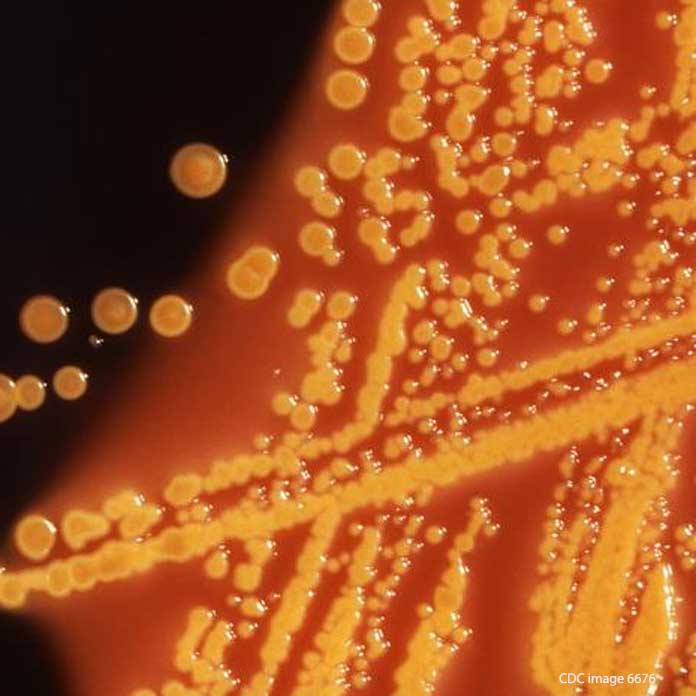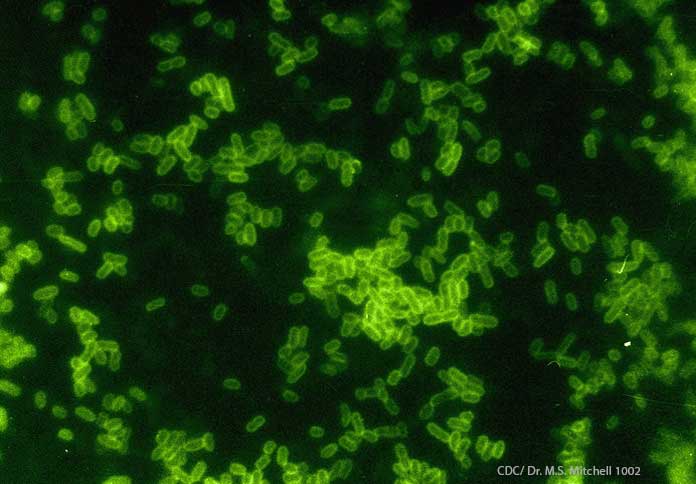An E. coli O157:H7 outbreak is associated with the Louisburg Cider Mill Ciderfest in Louisburg, Kansas. Seven laboratory-confirmed cases of the illness have been reported so far. The Ciderfest was held on September 24 to 25 and on October 1 to 2, 2016.
The Kansas Department of Health and Environment (KDHE), the FDA, and the Kansas Department of Agriculture are all investigating this outbreak. An on-site assessment was conducted at that facility on October 27, 2016. Environmental and food samples were collected for testing. Twelve samples were taken from equipment, apples, products that were made at the facility, and apple cider.
Anyone who visited that facility in late September and early October of this year and who has experienced the symptoms of an E. coli infection should see a doctor. This is a serious illness that can cause catastrophic and deadly complications.
Early testing has not found the bacteria in apples, in the finished cider, or in the production area at the facility. Other food vendors were at the Ciderfest, and although a formal petting zoo was not set up, animals were at the farm during the event. A corn maze and pumpkin patch were two of the other attractions at the farm.
E. coli O157:H7 Outbreaks
E. coli O157:H7 outbreaks have been linked to festivals in the past few years. Sources of the bacteria have included unpasteurized apple cider, raw milk, petting zoos, produce, and undercooked meats. Officials have not yet named a potential source in this particular outbreak investigation.
Ruminant animals at petting zoos and on farms have been the source of other E. coli outbreaks. These animals harbor E. coli bacteria in their intestines and can shed the bacteria in feces. If that feces get onto their coats, or onto the ground, people can get sick. If the feces from these animals contaminate a water supply, the bacteria can contaminate produce.
E. coli O157:H7 Infections and HUS
The symptoms of an E. coli O157:H7 infection include diarrhea that is watery and/or bloody, severe abdominal cramps, a mild fever, and possible nausea and vomiting. Most people get sick within one to ten days after exposure to the bacteria.
While most people get better without medical treatment, some become so sick they are hospitalized. The KDHE did not say whether or not anyone has been hospitalized in this outbreak or if any of the seven patients developed HUS.
This type of infection can cause a complication called hemolytic uremic syndrome (HUS). This illness is very serious and can cause kidney failure and death. The symptoms of HUS include little or no urine output, lethargy, pale skin, a skin rash, easy bruising, and bleeding from the nose or mouth. Anyone suffering these symptoms must be taken to a doctor immediately for treatment.
If you visited the Louisburg Cider Mill Ciderfest and have been sick with the symptoms of an E. coli O157:H7 infection, see your doctor. Then call our experienced attorneys for a free consultation at 1-888-377-8900. You may be able to sue facilities for costs associated with your illness and to protect your legal rights.

